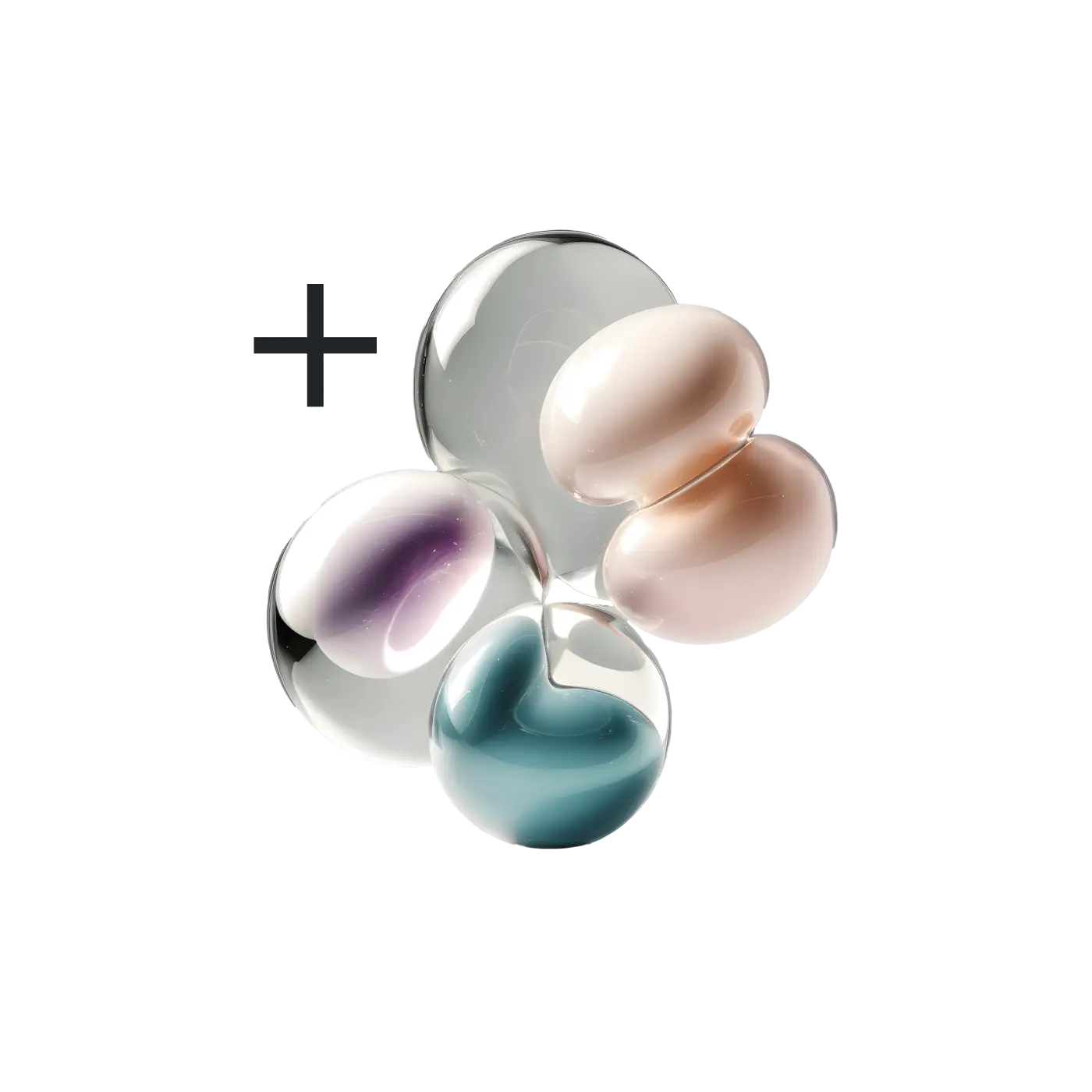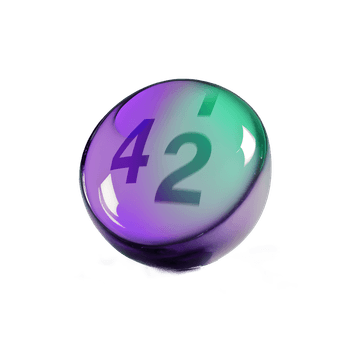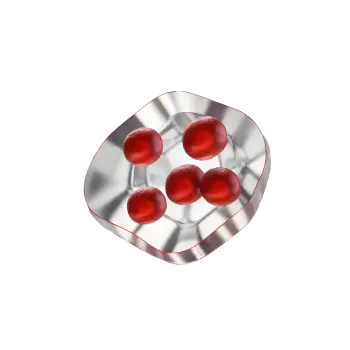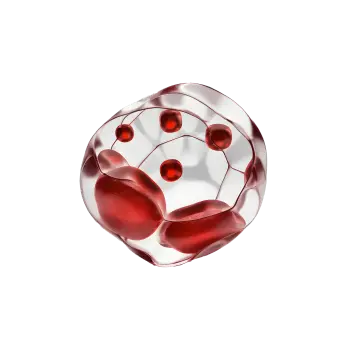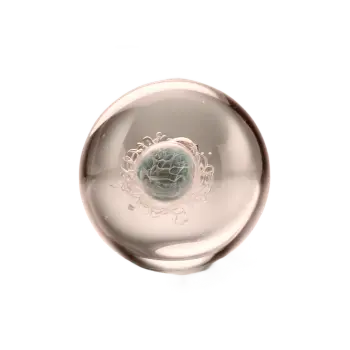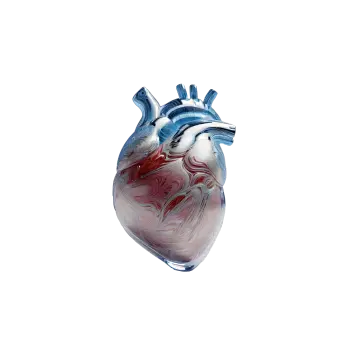A hormonal imbalance can have a significant impact on the menstrual cycle, mood, metabolism, libido and sleep. Our Hormonal balance woman Plus panel measures hormone and antibody levels to provide insight into possible underlying causes of symptoms such as fatigue, lack of energy, low sex drive and weight changes. By testing important female hormones, you can gain insight into the specific changes your body may be undergoing. This can help identify any imbalances and enable targeted action to restore hormonal balance and improve your well-being.
Hormones analyzed in the health check
Estradiol (estrogen)
Estradiol is the main form of estrogen in people assigned female at birth and it is produced by the ovaries. It is an important sex hormone that plays a central role in ovulation and reproductive health in people with the ability to conceive. After menopause, estradiol levels decrease significantly. Estradiol is also involved in skeletal development, female development of secondary sex characteristics and optimal functioning of the brain and reproductive system. It is a crucial component in maintaining the well-being and reproductive function of the female sex.
Progesterone
Progesterone is a hormone that plays an important role in maintaining the lining of the uterus and supporting a successful pregnancy. Progesterone production drops significantly when a woman reaches menopause and ovarian function declines. This can affect the menstrual cycle and fertility. Progesterone is central to maintaining reproductive health and is of particular importance during the fertile period in women who may become pregnant.
Luteinizing hormone (LH)
Luteinizing hormone (LH) is a hormone produced in the pituitary gland and plays a crucial role in the stimulation and maturation of ovarian follicles in the ovaries. Ovarian follicles are small fluid-filled sacs that contain immature eggs. During the menstrual cycle, an egg matures within the follicle, resulting in the follicle rupturing and the egg being released from the ovary for possible fertilization. LH is the key to this process and is necessary for ovulation and fertility.
Follicle stimulating hormone (FSH)
Follicle-stimulating hormone (FSH) is a hormone produced by the pituitary gland in the brain and plays a significant role in the growth and maturation of ovarian follicles, as well as in ovulation and the menstrual cycle. With age, basal levels of FSH usually increase due to decreased ovarian reserve, which requires higher levels of FSH to stimulate ovarian function. A normal FSH level may indicate that a person with a uterus has an adequate amount of eggs for their reproductive age. FSH is an important parameter for assessing fertility and reproductive health in individuals with the ability to conceive.
Cortisol
Cortisol is a hormone produced in the adrenal glands and released in response to stress factors such as illness and exercise. It is known as the body's "stress hormone", but also has several other functions, including regulation of blood sugar levels and energy metabolism. Cortisol levels are usually highest in the morning and drop to their lowest values in the middle of the night.
DHEAS
DHEAS (dehydroepiandrosterone sulfate) is an androgen hormone that is mainly produced by the adrenal glands. In people assigned female at birth, a smaller amount is also produced by the ovaries. DHEAS acts as a precursor to other sex hormones in the body. The main form of DHEAS in the blood is bound to a sulfate group and is called DHEA-S. By measuring the levels of DHEA-S in this test, one can gain insight into the hormonal balance and how this hormone affects the body.
Thyroid hormones TSH, T4 and T3
Thyroid stimulating hormone (TSH) is a hormone produced by the pituitary gland and regulates the production of the thyroid hormones T3 and T4. It is considered a sensitive marker in screening for thyroid diseases. Free T3 is the more active form of the thyroid hormone T3 and plays a role in the body's energy metabolism. Free T4 is the predominant form of the thyroid hormone T4 and is important for regulating energy use in the body's cells.
Prolactin
Prolactin is a hormone produced in the pituitary gland and plays a central role in the regulation of breast milk production in women. In addition to its function during breastfeeding, it also affects the menstrual cycle and fertility. Elevated prolactin levels can be associated with problems such as irregular periods and infertility in women.
Testosterone (for women)
Testosterone is an androgen hormone usually associated with men, but it is also produced in small amounts in women. It is important for the maintenance of bone mass, muscle mass and sexual function. Imbalances in testosterone levels in women can affect energy levels, mood and libido. This test provides insight into hormonal changes and can be useful in evaluating hormonal health in women.






















